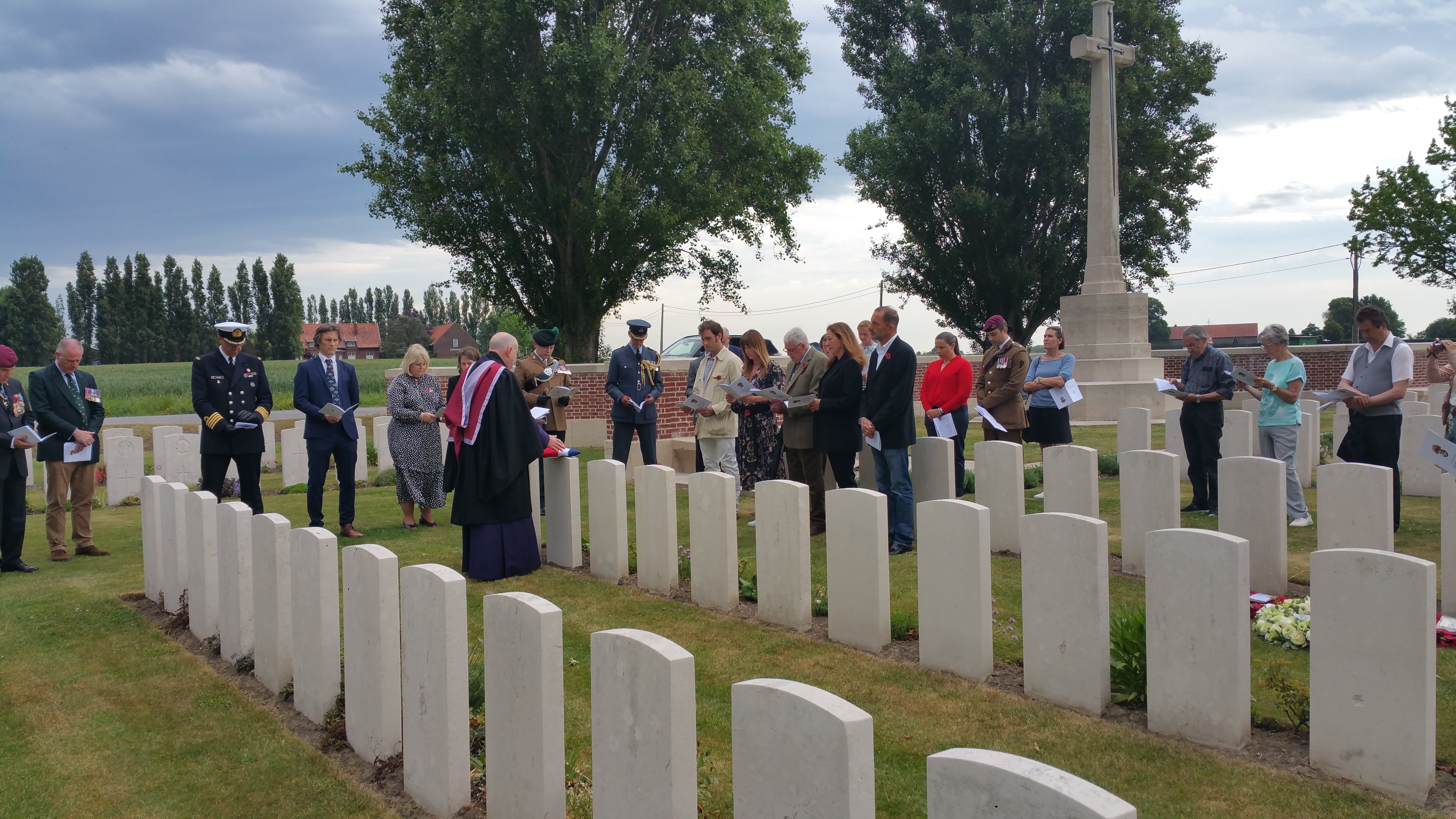First World War soldiers’ graves rededicated more than 100 years after deaths
The services were held in Ypres following the discovery of the graves of the two soldiers who served with Irish regiments.

Your support helps us to tell the story
From reproductive rights to climate change to Big Tech, The Independent is on the ground when the story is developing. Whether it's investigating the financials of Elon Musk's pro-Trump PAC or producing our latest documentary, 'The A Word', which shines a light on the American women fighting for reproductive rights, we know how important it is to parse out the facts from the messaging.
At such a critical moment in US history, we need reporters on the ground. Your donation allows us to keep sending journalists to speak to both sides of the story.
The Independent is trusted by Americans across the entire political spectrum. And unlike many other quality news outlets, we choose not to lock Americans out of our reporting and analysis with paywalls. We believe quality journalism should be available to everyone, paid for by those who can afford it.
Your support makes all the difference.The graves of two soldiers who were killed on the Western Front during the First World War while serving with Irish regiments have been rededicated in Belgium more than 100 years after they died.
Captain Hugh Mortimer Travers and Serjeant Frederick Cardy were remembered in services organised by the Ministry of Defence’s Joint Casualty and Compassionate Centre (JCCC).
The services were held at the Commonwealth War Graves Commission’s (CWGC) New Irish Farm Cemetery and White House Cemetery, near Ypres.
The final resting places of Capt Travers and Sjt Cardy were discovered after researchers submitted evidence to CWGC hoping to have located them.
Further research conducted by CWGC, the National Army Museum and JCCC, agreed with their findings and the identifications were confirmed.
Both Capt Travers and Sjt Cardy paid the ultimate sacrifice in the defence of freedom and justice
Rosie Barron, JCCC case lead said: “It is always a privilege to work with The Royal Irish Regiment to organise these services and to discover more of Ireland’s unique experience of the First World War.
“Both Capt Travers and Sjt Cardy paid the ultimate sacrifice in the defence of freedom and justice and it is as vital today as ever that their sacrifices are not forgotten.”
Capt Travers, aged 41 when he died, was a veteran of the Boer War.
For his service in South Africa he received The Queen’s South Africa Medal with five clasps and The King’s South Africa Medal with two clasps. He also received The King George V Coronation Medal.
Capt Travers was wearing these medal ribbons at the time of his death, which assisted with the identification of his grave.
The rededication service was attended by members of Capt Travers’ family, including his great nephew Guy Travers.
 Captain H M Travers (MOD/PA)
Captain H M Travers (MOD/PA)
He said: “I am very happy that a service has been held for my great uncle, Captain HM Travers, after so many many years. I believe my grandfather, his brother, had no luck in finding him.
“This service is also for him. And of course Hugh’s fallen comrades.”
The services were attended by representatives of the British and Irish Embassies as well as serving soldiers of The Royal Irish Regiment.
They were conducted by the Reverend Isaac Thompson, chaplain to the Royal Irish Regiment.
Rev Thompson said: “Hugh Travers, born in India into a family where his father and both of his grandfathers were Army officers, joined the Royal Munster Fusiliers in South Africa in 1893.
“Bravery appears to have oozed from this young man’s veins. As a 41-year-old he arrived in France in October 1914, but by November 1914 he was killed near Ypres.”
Sjt Cardy was serving with the Royal Irish Fusiliers when he was killed during the Third Battle of Ypres.
It was believed he was killed around midnight on August 12, 1917.
Thanks to the effort of many, the commission will proudly care for their graves, and their memory, in perpetuity
The headstones over the two graves will now be replaced by the CWGC, who will care for the sites.
CWGC commemorations officer, Fergus Read, said: “Having both been commemorated on the Ypres (Menin Gate) memorial until now, we are moved and honoured to be able to mark these brave men’s graves today.
“Thanks to the effort of many, the commission will proudly care for their graves, and their memory, in perpetuity.”